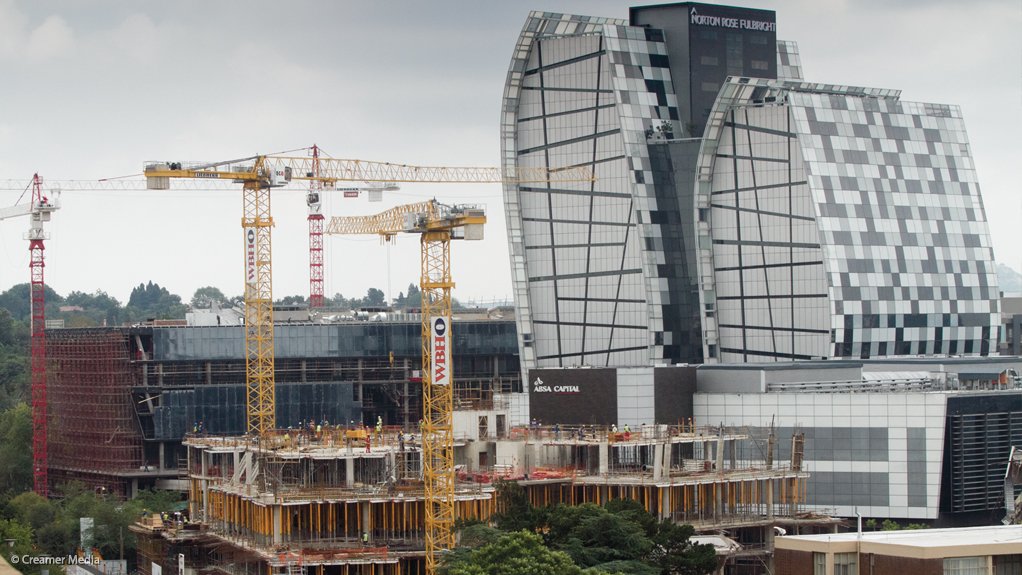The EcoMobility World Festival 2015 may have raised the ire of workers in the Sandton central business district (CBD), in Johannesburg, but remains firmly defended by Johannesburg mayor Parks Tau, who described the initiative to journalists on Thursday as an event that will conscientise the city’s urban commuters to the negative economic, environmental and social effects of traditional private transport.
The festival, which would run from October 1 to 31, would see a core portion of the Sandton CBD closed to regular traffic for the duration of the festival, while a comprehensive traffic management plan would be put in place to limit the temporary impact of disruptions.
Although residents, workers, the business community and visitors would have full access to the entire precinct through expanded public transport and arrangements to encourage cycling and pedestrian activities, the initiative had seen resistance from a large segment of the suburb’s working professionals, most of whom travelled to the hub in private vehicles.
According to Tau, a recent study on the impact of private transport on congestion in Sandton had revealed “unacceptable” levels of congestion in Africa’s dominant business hub.
“The study revealed that the most critical business area in Africa faces significant challenges around the current levels of congestion . . . and has indicated that we need to intervene to prevent Sandton from turning into a parking lot, as projected,” he said during an online press briefing.
Motivating the city’s decision to introduce the month-long traffic closure, Tau said the concept of ecomobility, which encouraged the uptake of nonmotorised, environment-friendly and public transport, would drive economic benefits in the form of extensive investment in supportive infrastructure, such as pedestrian routes, cycling lanes and dedicated bus lanes.
The city was already building bus-rapid transit lanes between Wynberg, over the M1 highway and along Katherine street, in Sandton.
Construction work was also under way on two new bridges over the M1 highway, one of which was the Grayston pedestrian bridge linking Alexandra and Sandton.
“We’re cognisant, however, of the fact that we can’t only solve the problem on the supply side, we need to change the behaviour of demand as well, and we must pay attention to enabling the ease of movement in the area,” he said.
The initiative, he advanced, would realise further environmental gains, reducing carbon dioxide (CO2) emissions and mitigating the effects of climate change.
Tau, meanwhile, lauded big business in the area for their efforts in incorporating sustainable green building practises in the development of the centre’s imposing office blocks.
“I’ve observed the commitment by business in deploying green building standards and I’m convinced the next step is the mobility side,” he remarked.
International clearing house for sustainable development and environmental protection policies ICLEI secretary-general Gino van Begin, whose organisation supported cities in the planning and implementation of ecomobility initiatives, told the media that the festival aimed to demonstrate the viability of a traffic-free city precinct.
This was particularly pertinent given the environmental impact of personal road transport modes, which he asserted made up 40% of overall global CO2 emissions.
Moreover, the transport sector’s contribution to greenhouse-gas emissions was expected to increase by a hefty 140% by 2050, he said.
“The symptoms of a city dependent on personal transport include detrimental air quality, congestion, a loss of public space and considerable economic loss,” he held.
According to the ICLEI, traffic congestion cost the European Union some €100-billion a year – or 1% of its gross domestic product.
The EcoMobility World Festival 2015 would be accompanied by a week-long session of ecomobility dialogues at the nearby Industrial Development Corporation and would be concluded with the signing of the Johannesburg Declaration on EcoMobility and Climate Smart Cities by local political leadership, which would be presented to the United Nations’ twenty-first Congress of the Parties Climate Summit, in Paris, in December.
EMAIL THIS ARTICLE SAVE THIS ARTICLE
To subscribe email subscriptions@creamermedia.co.za or click here
To advertise email advertising@creamermedia.co.za or click here











